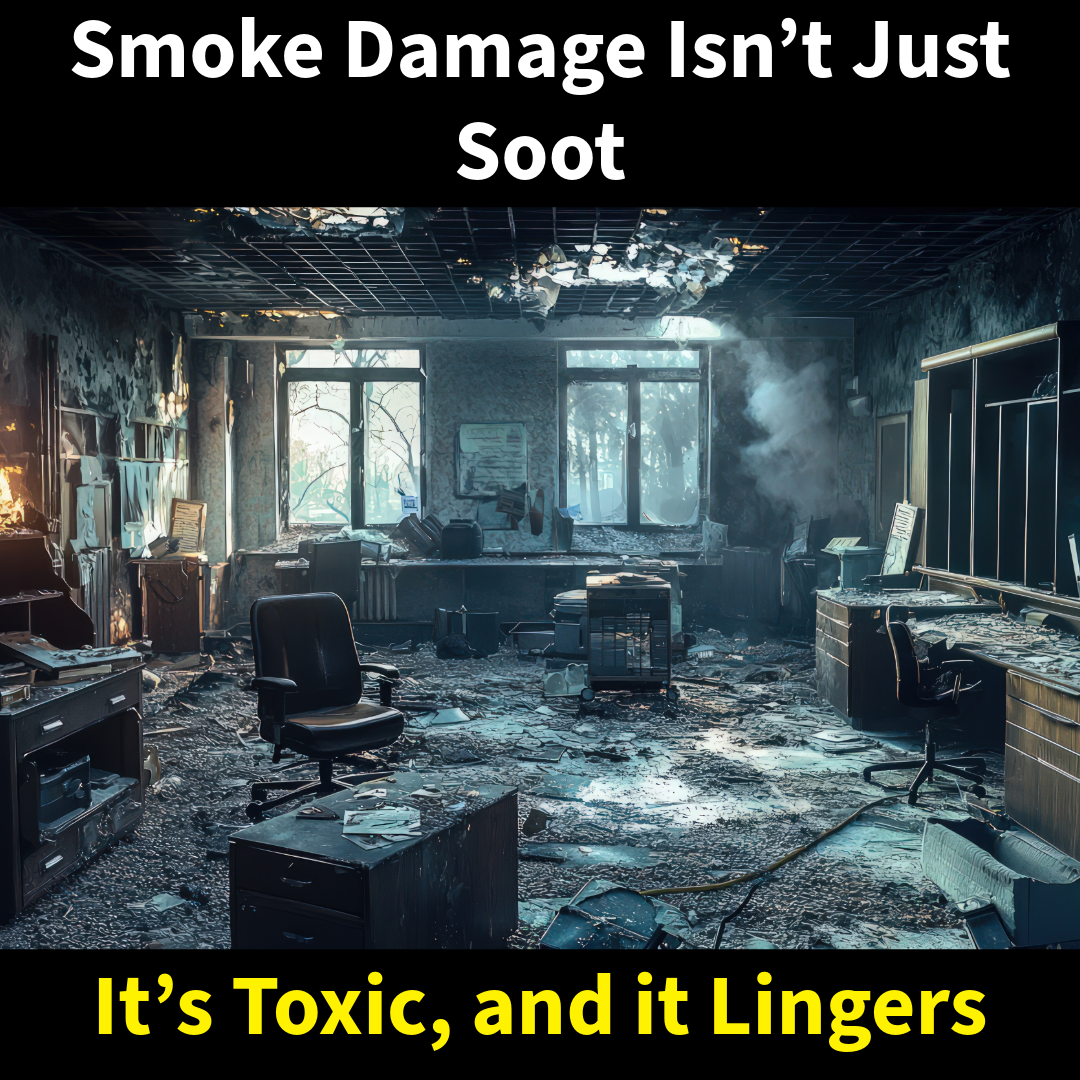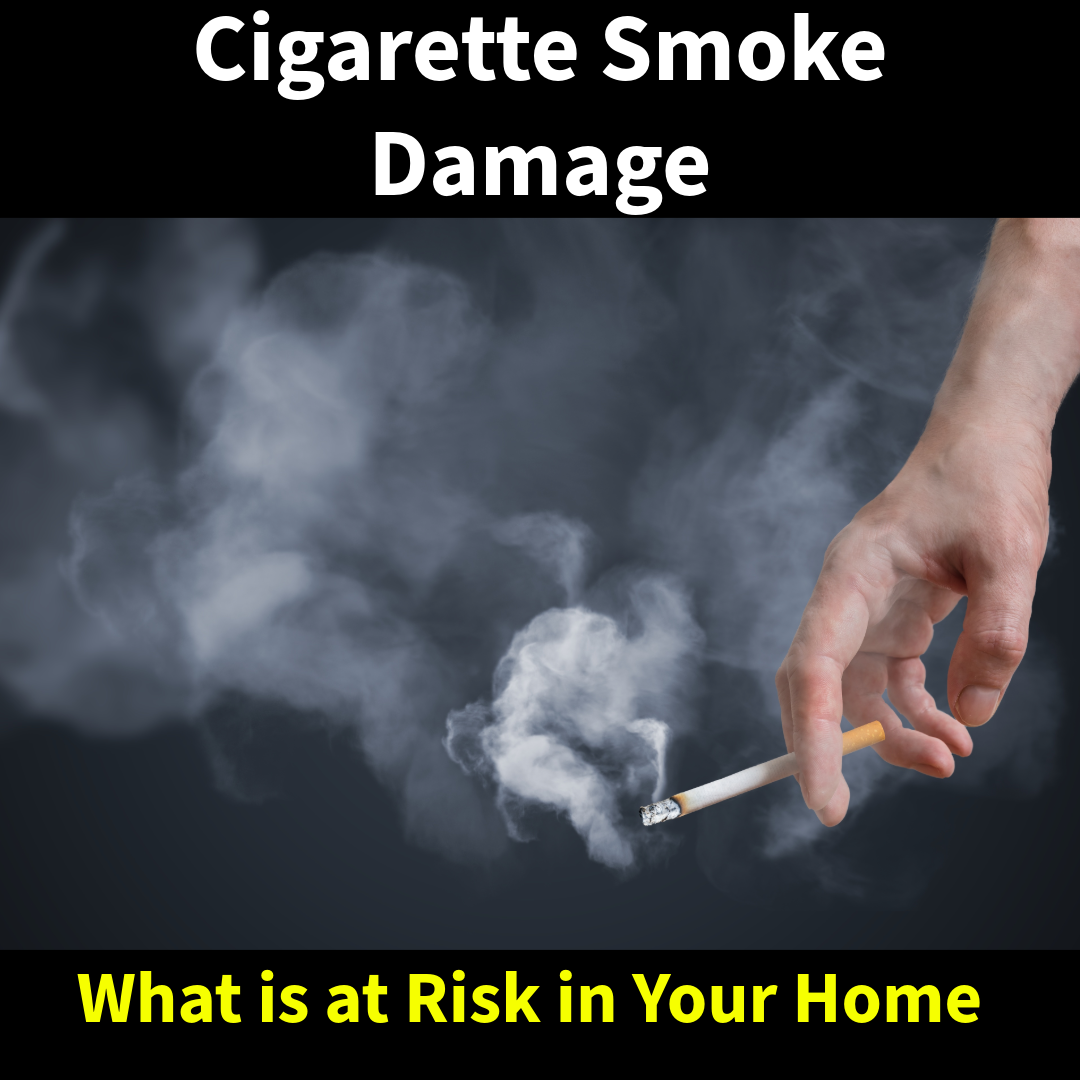When most people think about fire damage, they picture charred belongings or blackened walls. But the danger doesn’t end when the flames go out. One of the most serious — and misunderstood — threats after a fire is smoke damage, and it often sticks around long after cleanup seems “done.”
At MSI, we’ve seen firsthand how smoke residue affects homes, health, and air quality. Here’s what every property owner should know.
What’s Really in Smoke Residue?
Smoke isn’t just dirty — it’s chemical. As a fire burns, it releases toxic compounds from whatever materials are consumed: plastics, paint, electronics, furniture, even flooring. These materials produce:
- Acids that corrode surfaces and electronics
- Carcinogens like benzene and formaldehyde
- Microscopic particles that stay suspended in the air
- Persistent odors that embed into walls, fabrics, and HVAC systems
Simply wiping away visible soot doesn’t remove these hidden dangers.
Why DIY Smoke Cleanup Often Makes Things Worse
Homeowners and landlords sometimes try to handle smoke damage with store-bought cleaners or paint over the affected areas. But this approach can backfire:
- Soot smears easily and spreads deeper into porous surfaces
- Odors worsen when not treated at the source
- Lingering toxins may still circulate through your ductwork
- Structural materials like drywall or subfloors may need full removal
If not handled professionally, smoke damage can continue affecting indoor air quality for months — or even years.
Our Process: How MSI Properly Treats Smoke Damage
At MSI, we follow proven, safe restoration protocols that go beyond surface-level cleaning. Our process includes:
- Removal of affected building material beyond cleaning
- HEPA vacuuming and air scrubbing to remove particulates
- Chemical sponges and specialized cleaners to lift soot without smearing
- Thermal fogging and ozone treatments to neutralize odors
- Sealing affected surfaces when appropriate to prevent recontamination
- Content cleaning using ultrasonic machines and deodorization chambers
We don’t just clean what you can see — we clean what you can’t.
Don’t Let Smoke Damage Linger
If your property experienced a fire — even a small one — don’t assume the danger is gone. The effects of smoke can be just as harmful as the fire itself, especially if left untreated.
Whether you’re dealing with a recent event or still smelling smoke from a fire that happened weeks ago, call MSI. Our certified fire and smoke restoration team will assess the damage and return your space to a safe, healthy condition.

